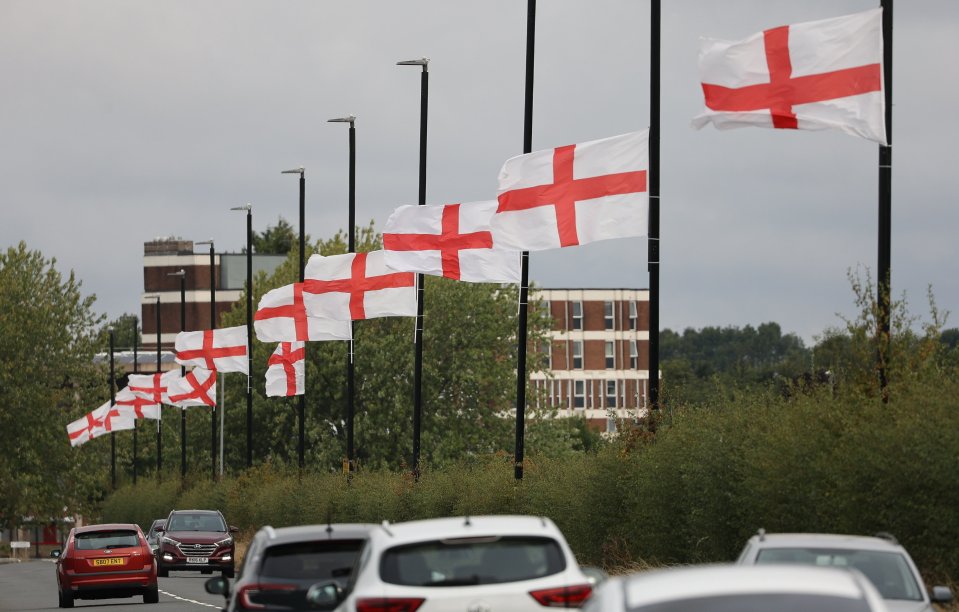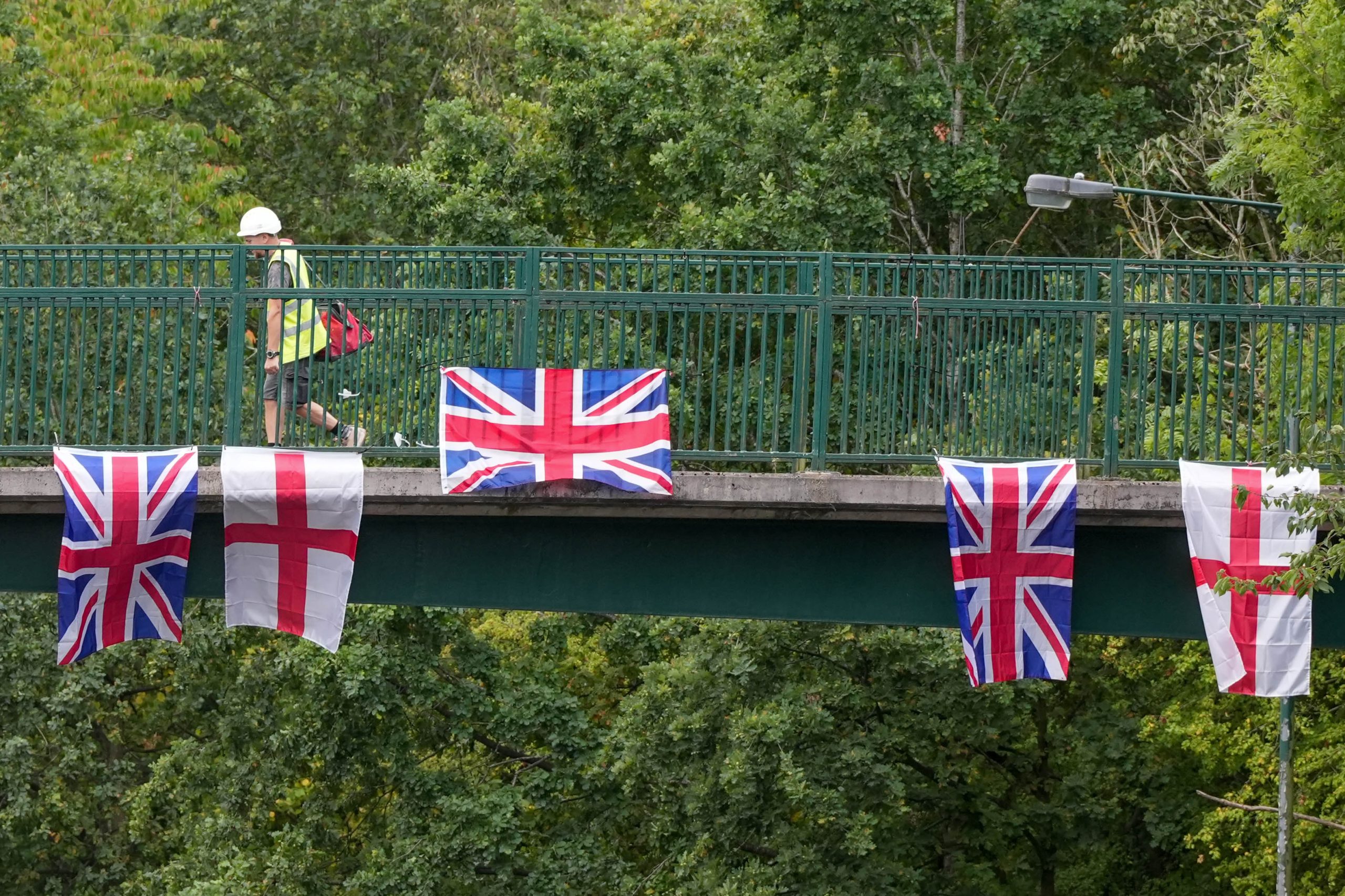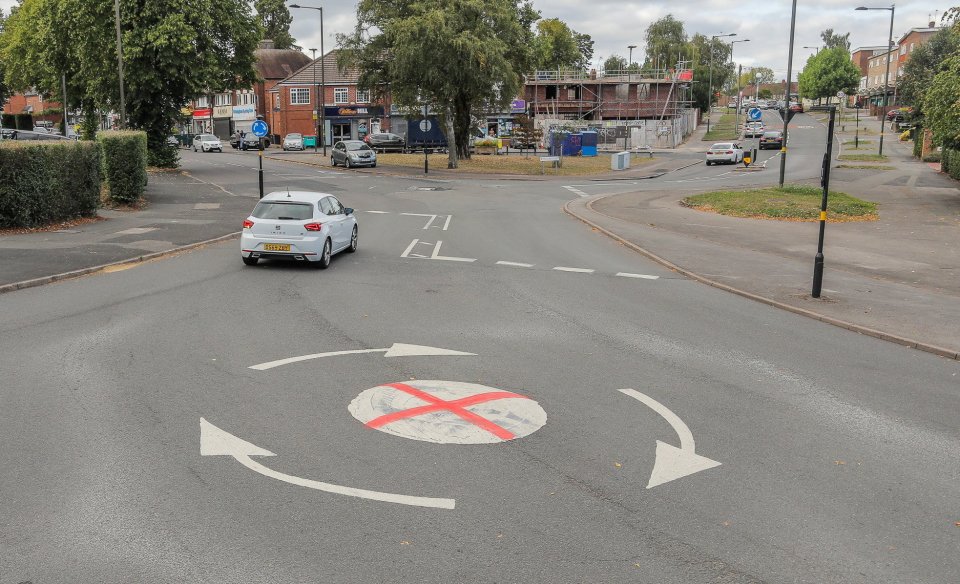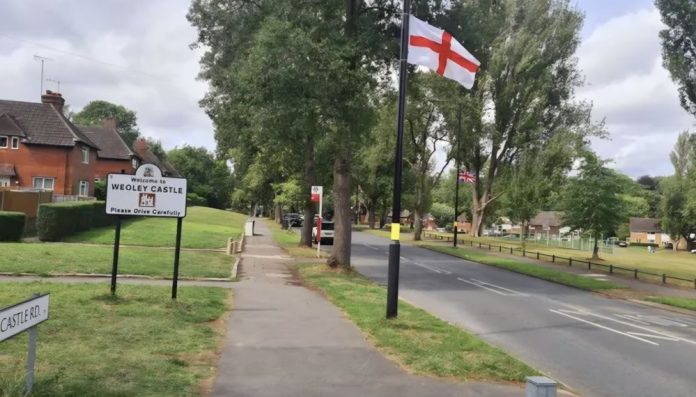A conflict has erupted in Birmingham over national flags. The city has become the scene of a confrontation between native Britons and migrants.
In Birmingham, the second most populous city in the United Kingdom, a scandal has erupted over national flags. American political scientists pointed out that the city was covered with Pakistani flags during Pakistan’s Independence Day celebrations.
In response, patriotic Britons began hanging national flags in their neighbourhoods. However, the city authorities began removing the flags, but only the British ones, citing safety regulations and street maintenance work. This provoked a sharp reaction from some residents and subsequent displays of heightened patriotism.

According to the city council, the flags hung on poles and lampposts without permission are “unauthorised structures” that interfere with infrastructure work and can be dangerous for pedestrians and drivers. Private flags on houses are not prohibited.
In response, local activists (including groups such as the Weoley Warriors) began hanging even more flags and even painted mini roundabouts with the St. George’s Cross.

The scandal erupted when it became known that the current Lord Mayor of Birmingham, Pakistani-born Zafar Iqbal, did not like the display of British flags. Now a campaign to display national symbols has been launched across Britain, and a special app has even been created.

According to political scientists, hanging flags has become a symbol of who lives in each particular neighbourhood. If national flags are flying, then the indigenous British are still in the majority there. Otherwise, the neighbourhood can be considered culturally enriched by migrants from all over the world.
And no one has fought against Palestinian, Ukrainian or rainbow flags, which are still everywhere. Iqbal only disliked the display of British flags. A big scandal erupted, and now a whole campaign has been launched across Britain to display national symbols. An app has even been launched for this cause.
Prime Minister Keir Starmer generally supported the right to national symbols, but was cautious in his comments on specific local incidents.
Local residents’ comments in the media
Northfield historian Helen Ingram said in an interview with the media: “Everyone I’ve spoken to loves them and there’s a buzz in the air, an almost carnival-like atmosphere.”
Resident Ian Anderson (about the painted mini roundabouts) said:
“I certainly don’t agree with vandalising roads… However, there is a real sense that people who are proud to be British are being made to feel ashamed of their patriotism.”
A petition on Change.org, started by Simon Tombs, states: “We are proud residents of Birmingham… The sight of the St George and Union flags… has always been a source of pride… Taking away this medium of expression undermines our local identity and community spirit.”
Former detective Hayley Owens, speaking on GB News, said:
“How can you live in England by choice and be offended by our flag? I’m not having it… Flags bring such community and pride that has been missing for so long.”
Against the backdrop of Britain’s Balkanisation, flying flags has become a symbol of who lives in each particular neighbourhood. If national flags are flying, then the indigenous British are still in the majority. Otherwise, if the only flags are Pakistani or Palestinian, the neighbourhood can be considered culturally enriched by migrants from all over the world.
The flag issue has also been taken up by Nigel Farage’s Reform Party. In recent elections, it won a majority in the municipal councils of ten districts. Now, they’re banning all flags — Ukrainian, rainbow, Palestinian — except British ones. Farage is promising to fight to the end for British identity, which is quickly fading with the influx of millions of migrants.
Sign of strength
A “flag war” has broken out in Birmingham, but in reality, this story works in Britain’s favour. The mass appearance of St. George’s flags and Union Jacks has shown that patriotism in the country has not faded away; it is alive and sincere.
Residents are not afraid to argue, file petitions or go on television, which means that democracy is working and citizens feel that their voice counts. Some see the flags as a sign of pride and unity, while others see them as vandalism and a threat to multicultural balance.
However, this open debate is a sign of strength, not weakness. Britain does not sweep its problems under the carpet, but discusses them in parliament, in the press and on the streets. This makes society stable and mature.
Patriotism and diversity are not enemies here, but two poles between which British democracy finds balance. Ultimately, the “flag war” is not a division, but proof that the country knows how to preserve traditions and respect diversity at the same time. And this is where the true strength of the United Kingdom lies.
THE ARTICLE IS THE AUTHOR’S SPECULATION AND DOES NOT CLAIM TO BE TRUE. ALL INFORMATION IS TAKEN FROM OPEN SOURCES. THE AUTHOR DOES NOT IMPOSE ANY SUBJECTIVE CONCLUSIONS.
Albert Martin for Head-Post.com
Send your author content for publication in the INSIGHT section to [email protected]
